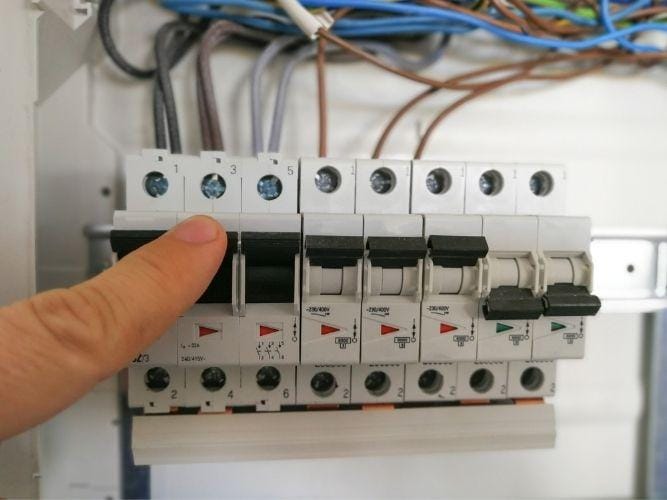

Congratulations! You’ve just become a homeowner. This experience is incredibly exciting—but it can also be quite daunting.
There’s a lot to learn about homeownership. You might have questions like: How do you unclog a drain? What about cleaning the eavestroughs? And how much will my utilities cost?
Have you thought about how you’ll manage electricity in your new home? From keeping your bills affordable to preventing overloads, we’ve put together 5 electrical tips for new homeowners:
You don’t want to imagine the worst-case scenario: that an electrical circuit could overload and start a fire in your home. But if that happens, it pays to be prepared.
After you move in, find out where your electrical panel is. This will come in handy if you ever trip a breaker—you’ll use the panel to reset it.
Your home might have a fuse box instead of a circuit breaker panel. It’s a little trickier to replace a blown fuse; you need to take out the melted fuse and replace it with a new one.
A fuse box tends to overload more often than a breaker box. Since electrical panels are designed to handle modern electrical loads, consider upgrading your fuse box to a breaker box.
Next, locate the fire extinguisher, and make sure it’s in good condition. Fire extinguishers aren’t just for show—they could potentially save a life. If the fire extinguisher is faulty, be sure to replace it ASAP.
When you toured your home, you probably paid attention to the floors, the layout, and the condition of the roof. We’re willing to bet that you hardly glanced at the electrical outlets.
Now, it’s time to take a closer look. Check for the following:
Have you heard of vampire power? Even when you shut off your appliances (or put them on standby), they still draw power from your outlets. The result? Wasted electricity and higher hydro bills. Try to get in the habit of unplugging your electronics, devices, and appliances whenever they’re not being used.
In your new home, you don’t want to worry about faulty outlets, outdated wiring, and fuses that keep blowing. And you don’t have to. The experts at powertec.ca will make sure your new home is designed to meet your electrical needs. To learn more, contact us today.